Carers' rights
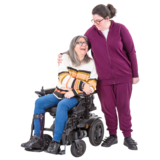
A carer is someone who supports a partner, family member, friend or neighbour who relies on them for help to live their life.
If you are a carer, you have lots of rights.
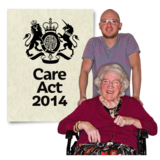
The Care Act 2014 is a law about care and support for adults in England.
It gives carers the right to support from the council.
The Children and Families Act 2014 gives young carers and parent carers similar rights.
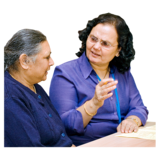
If you are a carer and you need some support, you have a right to have a conversation about the support you need.
In Doncaster, this conversation could either be with a social worker or a member of the Council's Wellbeing Team.
The Care Act 2014 calls this conversation a Carer's Assessment.

You have the right to choose if you want to be a carer.
You don’t have to be a carer if you don’t want to be.
The worker must ask you if you want to be a carer, and if you are able to be a carer.

The worker must listen to you to understand:
- the support you need now, or might need in the future
- the things that are important to you, like going to work, studying, or spending time with friends
- what might help you to live your life in the way that you want to.

If the worker thinks you have eligible needs for support, you have a right to have these needs met by the Council.
The person you care for and about must live in Doncaster for you to be eligible for support from Doncaster Council.

If you have eligible needs, you have a right to a personal budget.
Your personal budget must have enough money in it to pay for the support you need.
You have a right to a direct payment so you can choose how to use your personal budget.

If you don't have eligible needs, you still have the right to information, advice and support to help you continue caring and do the things that matter to you.

If the person you care for and about has an assessment or review, you have the right to be involved in conversations and decisions about their care and support.
Other rights you have as a carer

If the person you care for and about goes into hospital, under the Health and Care Act 2022 you have the right to be involved in plans for them to be discharged.
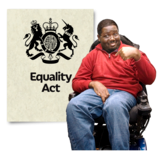
The Equality Act 2010 says you cannot be discriminated against based on your association with someone who is disabled.
This is because disability is a protected characteristic.
This means that people you work with cannot treat you badly because of your caring role.

The Employment Relations (Flexible Working) Act 2023 means you have a right to request flexible working.
Examples of flexible working include:
- working at different times of the day to core hours
- working from home for some or all of the time
- not working in the school holidays.

The Employment Rights Act 1996 gives you the right to take time off to deal with an emergency involving someone who depends on you, like a parent, child or partner.
This can be paid or unpaid leave and will depend on your employer.

The Carer’s Leave Act 2023 gives carers a legal right to five days of unpaid carer’s leave a year.
The right to take carer's leave applies from your first day of work.
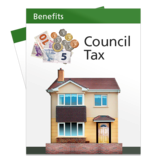
You have a right to a Council Tax discount if you meet certain criteria.
Council Tax discounts for persons with a disability, or care needs
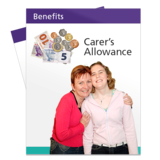
You may also be entitled to benefits like Carer’s Allowance.

You can find out more information about support for carers from Doncaster Council's Wellbeing Team:
Website: www.doncaster.gov.uk/carers
Email: carers@doncaster.gov.uk
Telephone: 01302 737100.
Images provided by Photosymbols
